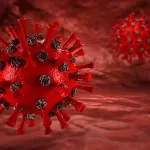
Breakthrough Treatment for Familial ALS Unveiled: Stabilizing SOD1 Variants with Innovative Cyclic Thiosulfinate Compounds
February 1, 2024Jeffrey Agar, an associate professor at Northeastern University, introduces a groundbreaking approach for treating familial amyotrophic lateral sclerosis (fALS), focusing on mutations in the gene encoding Cu-Zn superoxide dismutase 1 (SOD1). These mutations cause the destabilization of SOD1, forming toxic monomers that trigger damaging aggregates. In contrast to previous efforts, Agar’s team utilizes cyclic thiosulfinate cross-linkers, targeting a specific cysteine-containing motif, to stabilize fALS-causing SOD1 variants. The lead compound, “S-XL6,” significantly stabilizes the SOD1 dimer, demonstrating unprecedented efficacy. Importantly, S-XL6 rescues the enzymatic function of fALS SOD1 variants, providing a unique advantage over other therapeutic approaches. The study showcases S-XL6’s oral bioavailability, rapid engagement with SOD1G93A, and successful blood-brain barrier penetration in a fALS mouse model. This breakthrough prompts further exploration of cyclic thiosulfinate-mediated SOD1 stabilization as a promising therapeutic avenue for fALS.
Key Points:
- Mutations in the gene encoding SOD1 contribute to familial ALS cases, causing the destabilization of SOD1 and toxic aggregate formation.
- Traditional efforts to stabilize fALS SOD1 variants have fallen short, necessitating innovative approaches.
- Cyclic thiosulfinate cross-linkers, targeting a specific cysteine-containing motif, prove effective in stabilizing fALS-causing SOD1 variants.
- “S-XL6,” a lead compound, significantly stabilizes the SOD1 dimer, showcasing unprecedented efficacy.
- S-XL6 rescues the enzymatic function of fALS SOD1 variants, offering a unique advantage over other therapeutic approaches.
- Oral bioavailability, rapid engagement with SOD1G93A, and successful blood-brain barrier penetration highlight S-XL6’s potential in a fALS mouse model.
- Cyclic thiosulfinate-mediated SOD1 stabilization emerges as a promising therapeutic approach for familial ALS.
Reference
Hossain, M. A., Sarin, R., Donnelly, D. P., Miller, B. C., Weiss, A., et al. (2024). Evaluating protein cross-linking as a therapeutic strategy to stabilize SOD1 variants in a mouse model of familial ALS. PLOS Biology, 22(1), e3002462. https://doi.org/10.1371/journal.pbio.3002462


















